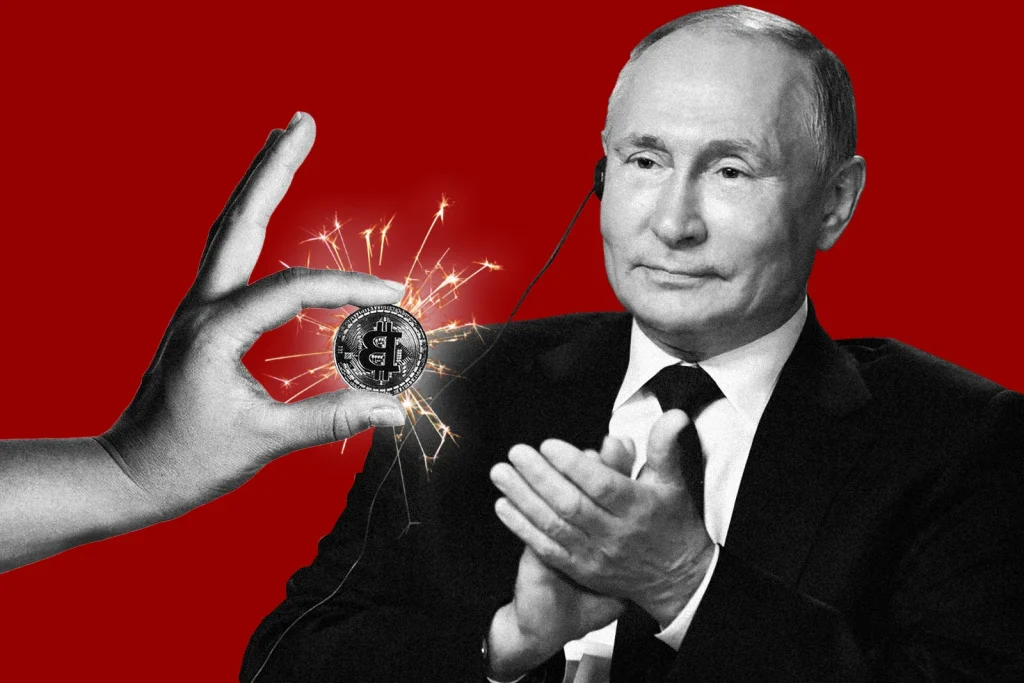Russia President Vladimir Putin Approves Crypto Mining Restrictions

Summary
- Russia caps unregistered crypto miners at 6,000 kWh per month; any excess requires registration as entrepreneurs.
- Crypto mining is restricted in 13 Russian regions, including Siberia and occupied territories, during peak winter until 2031.
- New tax laws classify cryptocurrencies as property, with mining income taxed and operational deductions allowed.
Russian President Vladimir Putin has approved new measures to limit cryptocurrency mining in several regions to address energy supply concerns. These restrictions aim to curb excessive energy consumption and ensure a stable electricity supply during peak winter months.
The new rules specifically target unregistered crypto miners, capping their monthly electricity usage at 6,000 kWh. Any mining operation exceeding this threshold will require registration as an entrepreneur, subjecting them to further regulatory oversight.
These measures are part of Russia’s broader efforts to regulate the cryptocurrency industry while conserving energy. Additionally, restrictions have been placed on crypto mining in 13 regions, including Siberia and occupied territories, through 2031 to help manage the country’s energy resources during the colder months.
Russia Imposes Crypto Mining Restrictions in 13 Regions
Russia will enforce crypto mining restrictions in 13 regions, including the occupied territories of Ukraine, from December 2024 to March 2031. The affected regions include the Irkutsk region, the Zabaikalsky Krai, and parts of the Republic of Buryatia in Siberia.
These regions will face limitations to curb excessive energy consumption, particularly during peak winter months. The restrictions aim to ensure a more stable and sustainable energy supply across the affected areas.
Additionally, from 2012 to 2031, annual emission standards will be upheld during the heating season in several regions, including the Republic of Dagestan, the Republic of Ingushetia, North Ossetia-Alania, Chechnya, Kabardino-Balkaria, and Karachay-Cherkessia. These measures are designed to regulate energy use and emissions during the colder months.
Overall, the restrictions form part of Russia’s broader strategy to manage energy resources and regulate crypto mining, ensuring minimal strain on the country’s power grid during the winter season.
According to local reports, the measures will also impact the occupied territories of Donetsk and Luhansk, as well as the Zaporizhzhia and Kherson regions. These restrictions were discussed during a government commission meeting led by Deputy Prime Minister Alexander Novak. The meeting focused on energy conservation, as power consumption in the country is expected to increase during the winter season.
Energy Restrictions for Individual Miners
To further control energy consumption, the government has set a maximum power usage of 6,000 kWh per month for unregistered cryptocurrency miners. Any miner exceeding this limit will be required to obtain an entrepreneur’s license to continue operations legally. The government stated that this measure aims to prevent unregistered miners from overburdening the power grid. While crypto mining will remain legal, it will be subject to reporting and taxation requirements.
These new measures could significantly impact Russia’s crypto mining sector, particularly in regions like Irkutsk. Irkutsk is known for its low electricity tariffs, cold climate, and abundant hydropower resources, all of which make it a popular location for mining activities. The region is also home to BitRiver’s largest data center, which opened in 2019 in Bratsk, near one of the world’s largest hydroelectric power stations.
These conditions have made the Siberian regions ideal for mining companies. However, due to the government’s energy supply restrictions, operations in these areas will be limited, leading to a decline in crypto mining output.
While Russia is implementing crypto mining restrictions, the US could emerge as a crypto hub under Donald Trump, thanks to his crypto promises, including the creation of a Strategic Bitcoin Reserve. Interestingly, Bitcoin advocate Anthony Pompliano recently urged the US to print $250 billion for this strategic reserve.
Crypto Taxation Implemented for Mining Activities
In addition to mining restrictions, Russia has introduced tax regulations for cryptocurrency transactions and mining operations. The new laws classify cryptocurrencies as property for tax purposes. Authorities will tax income from mining and trading based on the market value at the time of receipt.
Miners can deduct operational expenses from their taxable income, and crypto transactions will remain exempt from value-added tax. Mining infrastructure operators must submit regular reports on the miners they serve to ensure compliance with tax regulations.
The Ministry of Finance stated that these steps aim to balance the state’s interests with those of businesses. These measures reflect Russia’s increasing efforts to regulate the crypto sector and manage its energy demands effectively.











